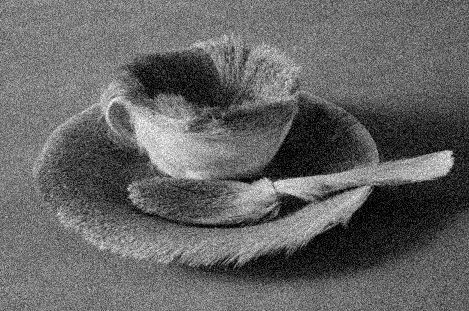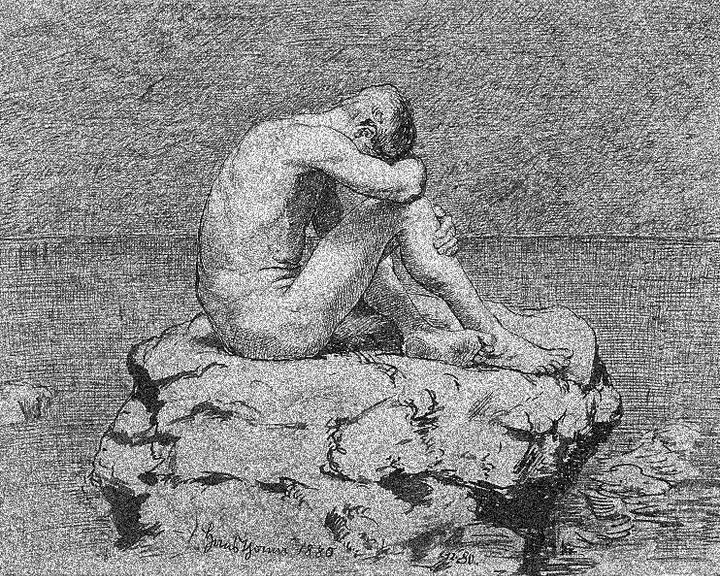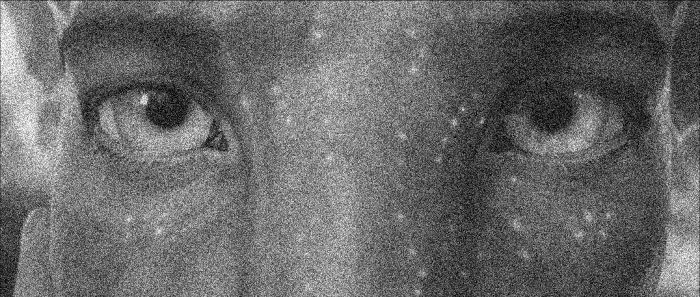Behind Our Backs, Part Two
Moishe Postone on theorists of the self.

See Part One of “Behind Our Backs” here.
Freud, de Beauvoir, Fanon: The Spring Quarter (The Self)
BF
Since we’d like you to talk about theorists about whom you haven’t written, we thought we’d discuss the quarters in reverse order and start with the spring, which begins with a long section on Freud. Why does Freud belong in the Soc Core?
MP
I don’t see any theorist of the Self who approaches Freud in terms of complexity and is so amenable to the idea that humans are constituted on a very deep level, and not simply, as later psychoanalytic theorists thought: you’ve got your little human being this tall, and then they learn things, like not to burp in public. I think of post-Freudianism more or less the way I think of post-Marxism: it’s a reaction against a certain kind of Freudianism, and a certain kind of Marxism, that never bothered to go back to see if there was something that Freud and Marx had to say—this is part of what I do in my work—that would provide a critique of that tradition, and that would also allow you to grapple with current phenomena in ways in which more superficial theories don’t. Just as I think Marx is not simply the theorist of mid-19th century British capitalism, I don’t think Freud is only the theorist of the Viennese Jewish bourgeoisie of the beginning of the 20th century. On one level he is, on another level, it goes far beyond that.
Freud is maddening. He’s a theorist who, like any truly great theorist, didn’t fully understand the implications of what he wrote down. So to understand Freud, you don’t go to the interview in People magazine with Dr. Freud. That’s why I simply don’t believe—it’s been a long time since I read it—Sullivan’s The Biologist of the Mind, not for a minute. Sullivan doesn’t pay enough attention to Freud, to the theory, and pays too much attention to things he may have done or said.
I don’t think you can flatten social phenomena out by, in a sense, flattening the unconscious. I mean, isn’t that basically what—to mention another one of the most prominent anti-Freudians—Jeffrey Masson did? By denying that any of this could be the fantasy life of the girl, by accusing Freud of aiding and abetting child abuse, he transformed the theory of the unconscious back into an empirical theory. Which I think totally impoverished the theory, and assumes that there’s a one-to-one relation between experience and reaction. Everything that I think Freud was moving away from.
BF
What is it that you hope to impart to students in relation to Freud?
MP
I try above all to get them to take seriously this amazingly fertile mind, who simply does not take phenomena at face value. He is always opening up, questioning himself, and opening up further. Unfortunately there are times where the processes he uncovers, he reifies, I think. But they are nonetheless processes he uncovered. So I try to avoid teaching things like—here’s a map of the mind, superego, ego, id—I think it’s just too easy.
The main idea that I try to impart is that human beings are driven by unconscious impulses and, further, that the more those unconscious impulses are repressed, the more humans will be driven by them. Therapy is thus a kind of sober emancipation. It doesn’t make you happy, but it makes you more self-determining than you had been, by destroying the illusion that you were self-determining before. And it’s not an existentialist teaching, that you simply come to grips with your loss, which is the way I understand Lacanianism—you reconcile yourself to the tragedy of separation. I think in Freud there really is this sense of—you could live differently.
JC
What do you think of the choice of de Beauvoir and Fanon as the successors to Freud (and why these two in particular), and the other key thinkers in the theory of the self?
MP
It’s a good question. Ideally, if we had 36-week school years, we’d have sections that deal with gender and race—with regard to political economy, with regard to culture, and with regard to a theory of the self—but as is, they’re always shoehorned in, and we’re not doing justice to them. Unfortunately, de Beauvoir and Fanon carry alot of weight: they’re not just post-Freudians or thinkers of the self: they are in a sense signifying in the course issues of gender and race. And I think it’s really a problem.
Regarding other theorists of the self, we’ve tried other readings that didn’t work for one reason or another. A book that I like, even though it’s very old now, was Juliet Mitchell’s Psychoanalysis and Feminism. She’s a little too close to French Structuralism for me, but I think her explication of the unconscious in that book is wonderful. It’s really wonderful. And I think that her critique of many of the feminist theorists of the time—Germaine Greer, Kate Millett—is very well-put: essentially, she was showing that they were quasi-positivists, that they missed the point about Freud. But for a lot of the students, it was too much Freud. After going through Freud, for many of them, it felt like going through Freud again. And that was a shame, because I think she has a much more sophisticated understanding of Freud than Simone de Beauvoir ever had. But Simone de Beauvoir has a historical reach in terms of her vision that I don’t think someone like Judith Butler has. Once you get into someone like Butler, it’s like nothing before 1980 exists. I don’t know if de Beauvoir is sufficiently reflexive historically, but she certainly presents a kind of a historical overview. In part, it’s because of her Engelsian Marxism.
JC
De Beauvoir and Fanon are responsible, in part, for the development of this category of the Other that is now common sense in the Humanities and Social Sciences. Do you have thoughts on this issue of the Other as it appears in a theory of the self?
MP
One of the reasons why Black Skins, White Masks is very uncomfortable for a lot of students is that it’s in part a psychoanalytic approach to the experience of being Other. In postcolonial thought, by contrast, the Other is a reified category. It’s reverse Orientalism, where you’re not allowed to do a critical analysis of a Muslim society. With what’s going on now, people are totally helpless conceptually.
JC
In a way he refuses the Levinasian hands-off position.
MP
Levinas, hin und her, it’s a liberal position. Who am I to say anything about the Other?
BF
There’s something about a subjective analysis of race that you get in Fanon that you don’t get in reading something more straightforward about the objective oppression of black people in the States or elsewhere. When, for instance, you read “The Black Man and Psychopathology,” that chapter where he gets into the white projections onto black men that make them overly sexualized, it gets you to a place where they’re discussing race in ways that are…
MP
Uncomfortable. One of the reasons I think Fanon is so challenging, for many students, is because he argues that the system of racism creates certain kinds of selves that are not free from it, that it does not sit like a carapace on the black self, which is just waiting to burst the carapace and emerge. In some respects, aspects of The Wretched of the Earth are for me a theoretical regression and indissolubly linked with a valorization of violence as liberating. There is a kind of fairy tale that racist structures remain external to people, and that all you have to do is change the structure and everything will poof! Then there’s just you and me. There’s no damage done. It’s a form of positivism. And I think Black Skin, White Masks makes students uncomfortable because that isn’t what he does there.
JC
That’s in a way a through-line about the theory of the self. For Freud too. For all three of them—Freud, de Beauvoir, Fanon, the theory of the self is a theory of damages.
MP
Yes, but Freud has multiple levels. Freud has a theory of the coming-into-being of humans. We’re not blobs of protoplasm. If you just stuck a human out in the forest, that’s what they would be, a blob of protoplasm. Not speaking, not having the skills of raccoons or wolves or whomever, being pretty helpless there.
BF
When you say that the virtue of Freud is that he understands us to be constituted on a deep level—to some extent that’s the start of social science. So I’m wondering, do you take something like psychoanalysis to be integral to social theory, or simply complementary? Do you think something like the unconscious is necessary to do good social theory?
JC
Or to put one other option out there, is it in tension with social theory?
MP
Well, it’s certainly in tension with some approaches. Is it necessary? For some things, probably. I don’t think it’s a terrible thing to say that a great deal of our cultural production is sublimated sexual energy. Looking at the regulation of sexuality was a genius move. Showing that sexuality is so omnivorous that anything—this cup can be a sexual object. With hunger, you can move from sushi to tacos—even witchetty grub, if you’re an anthropologist, but hunger’s object is much more limited and defined. Sexuality, by contrast, is not instinctual, and as such, it’s a possible beginning of an explanation as to why there is this surplus energy that human beings have used to create a whole range of things, from tools to cave paintings to pottery. For me, there was an Aha! moment when I first read Freud’s work on sexuality. For me, that’s a stand-alone insight, because I think a lot of social theory doesn’t reach that level. So in some respects it’s more fundamental than social theory.
But it’s usually weaker when it comes to the historically-specific, so it should be married with something else. Marcuse tried, Adorno tried. In very different ways. Adorno looking much closer at the clinical work and much less at the metapsychological work than Marcuse. But I find it interesting that both of them took Freud seriously as an emancipatory thinker, really.
There are other things that require at least some psychoanalytic dimension: maybe it’s insufficient, but, for example, the appeal of Hitler. All the Western journalists are saying: this guy’s just a bad imitation of Charlie Chaplin, and the Germans are enthralled. The cathexis was so strong that it’s hard to imagine that there isn’t a dimension that would be illuminated by psychoanalytic investigation. But how do you mediate psychoanalysis with the specificity of German history? It’s not self-evident the way you do it.
JC
This also seems true of the cathexis to nationalism. For Marcuse it’s this continuing connection to aggression.
MP
Yes, nationalism would be a real question, which has never been answered. You know Ben Anderson’s book on Imagined Communities? He starts with the monuments to WWI—why millions died for their country, supposedly. He never gets back there. His analysis of the difference between Indochina and South America in terms of traveling elites is nice, but it doesn’t answer the question of this enormous cathexis, which is nationalism. So I agree with that. But the Nazis had it in spades. Also, they’re soldiers. Soviet Monument in Berlin—80,000 Soviet soldiers died in the siege of Berlin. That’s double Vietnam, in one battle. It meant that they faced very, very stiff resistance.
JC
We’ve talked a bit about the authors that we read in the “Self” quarter, but we also wanted you to explain more broadly why a theory of the self has a place in a course on general education in social theory.
MP
Why not?
BF
Well, why not Politics, Culture, & Society?
MP
I wish we did politics as well, that we had four quarters. We don’t do enough on the political. But we’re the only people who do Culture, and the only people who do Self. In any extended way, I mean—in “Power, Identity, & Resistance,” I think they read Foucault and de Beauvoir, but they don’t read Freud. It’s like reading Lenin or Kautsky and never having read Marx. Maybe people don’t like the analogy…
In a sense, “Self, Culture, & Society” is about, in terms of content, theories of social constitution: the constitution by humans of society [the fall], the constitution by humans of systems of meaning, even though they are unaware of the fact because they operate within them, operating within a system that is humanly created [the winter], and finally the social and cultural constitution of the self [the spring]. People will talk about “social construction,” but usually what they mean is that the process by which a group is disadvantaged, disempowered, or marginalized is social. And that can go hand in hand with an idea of the indissoluble primacy of the self, a self being buffeted by the outside. There isn’t nearly the same emphasis on the self being constituted, and not only by patterns of prejudice (very old language, I know).
JC
So does the revelation of the self as socially-constituted mean a commitment to a critique of the self, even a dissolution of the self?
MP
There’s no such thing. Actually, there is: it’s called psychosis. There was this very interesting debate in the 60s between Marcuse and neo-Reichians, who, following Wilhelm, really believed there was a natural self, just as there is a natural sexuality that, if you just do away with repression, can emerge. Marcuse had a position with which I’m certainly much more sympathetic that there is a necessary process of human formation.
The critique of the self doesn’t have to end in its dissolution. So the quarter doesn’t have a programmatic end that way, other than to dereify a whole set of assumptions that they have. So it begins, it’s the possibility of a beginning. It’s like this brilliant line in Philip Roth’s Portnoy’s Complaint, which saved the whole book for me: he’s telling all these embarrassing things about himself, the kinds of things you would only tell an analyst, and then at the very end, the analyst, Dr. Spielvogel says, “So, should we begin now?”
■
Moishe Postone was Thomas E. Donnelley Professor of the College, History, and the Center for Jewish Studies at the University of Chicago and the author of Time, Labor, and Social Domination.
Jeremy Cohan is a PhD candidate in Sociology at New York University.
Benjamin Y. Fong teaches at Arizona State University.



